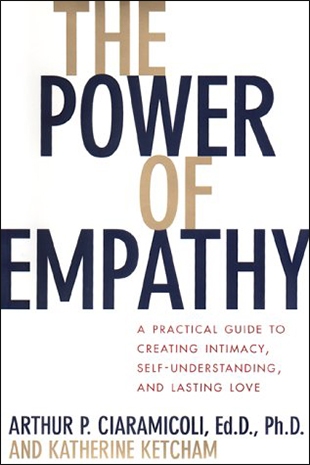"Empathy is the capacity to understand and respond to the unique experiences of another. Empathy's paradox is that this innate ability can be used for both helpful and hurtful purposes," notes Arthur P. Ciaramicoli, a member of the faculty at Harvard Medical School who has co-authored this book with Katherine Ketcham. Empathy is a skill that is teachable and can be developed at an early age. It enables us to "mend relationships and to heal deep, long-standing rifts between people."
Ciaramicoli and Ketcham believe that we can sharpen our empathy by asking open-ended questions, slowing down, avoiding snap judgments, paying attention to our bodies, learning from the past, letting the story unfold, and setting limits. Its shadow side manifests as a tendency to manipulate others. The authors link this human faculty to the spiritual practices of listening, kindness, faith, hope, gratitude, and forgiveness. They illustrate their points with many fine stories and quotations (we clearly have the same taste as we choose many of the same ones for our book Spiritual Literacy).
Empathy is often expanded into the lives of others through patience, determination, and flexibility. In these uncivil times, it can serve as a lubricant in the nasty, aggressive, and narcissistic push-and-shove of life. By increasing our awareness of other peoples' thoughts and feelings, we can make the world a better place.
